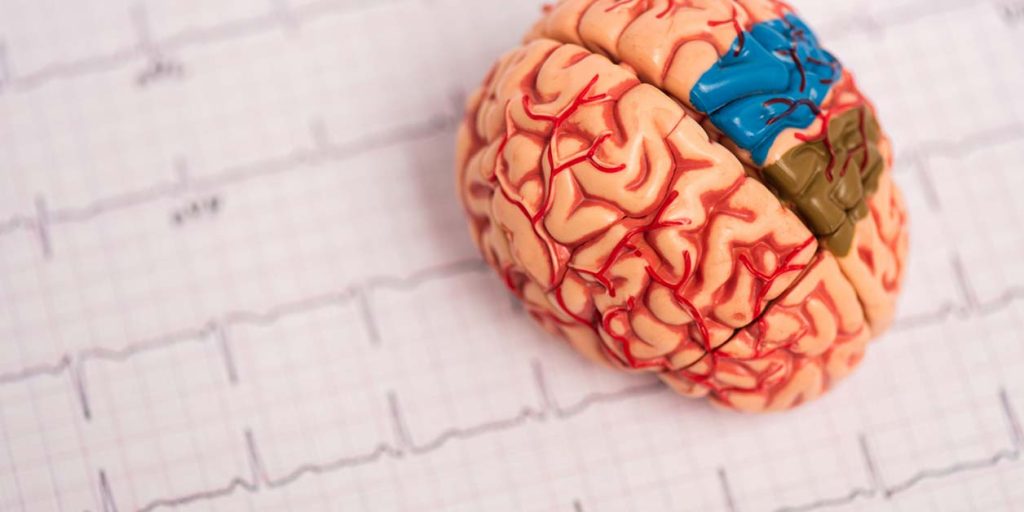Attention Deficit Hyperactivity Disorder (ADHD) and social anxiety are two separate yet often intertwined conditions that can drastically affect someone’s daily life. ADHD brings difficulties concentrating, impulsive behavior, and hyperactivity, which can make social situations hard to deal with. Social anxiety, on the other hand, means having an intense fear of being judged or watched, making it difficult to be part of social gatherings. This article will explore the relationship between ADHD and social anxiety and their effects on people.
Having both can be especially bothersome as these conditions heighten each other’s symptoms. An individual with ADHD may have trouble starting conversations or speaking up in social scenarios, while their impulsive behavior and lack of focus can increase their anxiety. This creates a continuous cycle that makes it hard to conquer either one independently.
It is important to note that everyone’s experience with ADHD and social anxiety is unique. Symptoms may differ from person to person and so do the strategies used to cope. Medication for ADHD may help certain aspects of social anxiety like impulse control or attention span. However, medication alone may not resolve all the issues caused by these two conditions combined.
Let us look at Sarah’s story, a young woman diagnosed with both ADHD and social anxiety as a child. She was not able to focus and had difficulty fitting in with her peers. Her classmates thought she was shy or uninterested, when she was actually dealing with her inner anxieties and racing thoughts.
Sarah eventually found ways to cope with her conditions. She took comfort in activities like painting and writing which allowed her to express herself without the stress of socializing. With the help of therapy, family, and friends, Sarah gradually figured out how to manage living with ADHD and social anxiety. This led to moments of success and joy.
Understanding ADHD and Social Anxiety
To understand ADHD and social anxiety, dive into the definition and symptoms of ADHD and social anxiety. This will provide insight into the challenges individuals face when dealing with both conditions simultaneously.
Definition and Symptoms of ADHD
ADHD is a neurodevelopmental disorder with patterns of inattention, hyperactivity, and impulsivity. People with ADHD often battle to focus, organize, and control impulsive behavior. Symptoms can look different in adults and children. Commonly, forgetfulness, trouble following directions, too much talking, restlessness, and impulsivity arise.
Moreover, people with ADHD may have difficulty understanding social cues and norms. This can make forming and keeping friends hard, causing feelings of seclusion and low self-esteem. Additionally, individuals with ADHD are more likely to experience other mental health issues, such as anxiety disorders.
What’s special about ADHD is that symptoms can differ greatly between people. Some may primarily show signs of inattention, while others might have more active or impulsive behaviors. The intensity of symptoms can also vary.
It is not essential for everyone with ADHD to have social anxiety. But, when compared to the population in general, individuals with ADHD are more likely to have social anxiety. The relationship between ADHD and social anxiety is complicated and multi-faceted. It is thought that issues related to ADHD, such as executive functioning deficits and social skills deficits, could contribute to the emergence of social anxiety.
Pro Tip: If you believe you or someone you know might have both ADHD and social anxiety, seeking professional help can be useful in discovering the right interventions and strategies for managing the two conditions successfully.
Definition and Symptoms of Social Anxiety
Social anxiety is a fear or discomfort in social situations. It can lead to sweating, trembling, a racing heart, and feeling judged. It can have a huge impact on daily life and relationships.
People with social anxiety usually worry about being evaluated negatively. This can cause them to avoid social gatherings, speaking in public, and everyday activities like eating in front of others. Low self-esteem and self-consciousness are common too.
Other unique details worth noting about social anxiety are excessive fear before social events, physical symptoms, excessive self-criticism, and difficulty forming relationships out of fear of rejection.
An example of the effects of social anxiety is Emily, a college student. Despite her intelligence, she was too scared to participate in class discussions due to fear of judgment. This affected her education. With therapy and support, she was able to overcome her social anxiety.
By understanding social anxiety, we can better comprehend the difficulties faced by those living with it. By raising awareness and giving support, we can create an accepting society.
The Relationship between ADHD and Social Anxiety
To understand the relationship between ADHD and social anxiety, explore common challenges faced by individuals with ADHD and social anxiety. Learn how ADHD can influence the development of social anxiety.
Common Challenges Faced by Individuals with ADHD and Social Anxiety
Individuals with ADHD and social anxiety have difficulties. Struggles with organization, time management, and impulsive behaviour are common. Additionally, engaging in social interactions is tough, leading to loneliness and low self-esteem. The fear of being judged exacerbates their anxiety.
However, hope is not lost! Asking for professional help and using coping strategies can enhance their lives. Don’t let the fear of a lack of social life hold you back. Get support and take action to overcome these obstacles.
How ADHD Can Influence the Development of Social Anxiety
ADHD and social anxiety can overlap, intensifying each other’s symptoms. This neurodevelopmental disorder impairs focus, impulsivity, and emotion regulation, making it difficult for individuals to engage in appropriate social behavior. Consequently, they may miss cues, become self-conscious, and have low self-esteem.
Therefore, it is necessary to recognize this relationship and create strategies to manage both conditions. Structured routines, CBT, and social skills training can help reduce stressors and reframe negative thinking. By providing support, we can create an environment that encourages healthy interactions and addresses underlying anxieties.
Strategies for Managing ADHD and Social Anxiety
To manage ADHD and social anxiety effectively, implement strategies that address both conditions. Explore the benefits of medication and therapy options, as well as lifestyle changes and coping mechanisms. Each of these approaches provides valuable solutions for navigating the challenges posed by ADHD and social anxiety.
Medication and Therapy Options
Medication and therapy are both key for managing ADHD and social anxiety. These treatment approaches give individuals the tools to reduce their symptoms and improve their overall wellbeing.
Ritalin and Adderall are two stimulants commonly prescribed for ADHD. They work by changing how neurotransmitters act in the brain, helping people focus and reduce impulsive behavior. Strattera is an alternative non-stimulant medication.
Therapy is also important for these conditions. Cognitive-behavioral therapy (CBT) helps people find and change thoughts that make anxiety or impulsivity worse. It teaches them coping strategies and social skills.
Group therapy also helps. It’s a supportive place where people can share experiences, learn from each other, and build relationships. This helps foster understanding and empathy among participants.
Here’s an example of how medication and therapy can help manage ADHD and social anxiety: Sarah, a college student diagnosed with both, was having trouble at school because she couldn’t concentrate and was scared of social interaction. Medication helped her focus. But it was CBT that gave her the skills to overcome her anxiety. With a combination of medication and therapy, Sarah was able to succeed at school and build better relationships with her peers.
Medication and therapy options give people with ADHD and social anxiety the chance to improve their quality of life. Finding the right treatment tailored to individual needs is essential for long-term management. Professional guidance is needed to explore these options.
Lifestyle Changes and Coping Mechanisms
Everyone’s journey is one-of-a-kind, so it’s important to find the best coping mechanisms that fit you. Establishing a schedule with times for meals, work/study, exercise, and relaxation can be super beneficial. Plus, regular physical activity releases endorphins, which improves mood and reduces anxiousness. Mindfulness techniques, such as deep breathing and meditation, can help manage ADHD and social anxiety.
Sarah, a young woman with ADHD and social anxiety, changed her lifestyle to cope better. She woke up earlier and used meditation to start the day feeling focused. She also joined a local dance class for an outlet and to build confidence.
Small steps towards a happier and healthier future without compromising individuality can help those with ADHD and social anxiety navigate life more effectively. Finding what works for you is key!
Overcoming Social Anxiety in Individuals with ADHD
To overcome social anxiety in individuals with ADHD, equip yourself with effective strategies. Conquer challenges by mastering social skills training and support, as well as cognitive-behavioral therapy techniques. These powerful tools can help you thrive in social interactions and enhance your overall well-being.
Social Skills Training and Support
Individuals with ADHD can have difficulty understanding social cues. Social Skills Training can give them the tools they need to navigate social situations. Support groups can lend a sense of belonging and emotional support, reducing social anxiety. Cognitive-Behavioral Therapy (CBT) is often used in Social Skills Training. It helps individuals challenge and reframe anxious thoughts, leading to more self-confidence.
Customizing interventions to individual needs increases engagement and effectiveness. Harpin et al. (2015) found that those with ADHD who got Social Skills Training showed improvement in social functioning compared to those who didn’t. This shows the benefit of these programs in addressing social anxiety in those with ADHD.
Cognitive-Behavioral Therapy Techniques
Jane faced ADHD and social anxiety. Cognitive-behavioral therapy helped her. She learned to challenge her negative thoughts and face her anxieties. She gained confidence in social settings. She even built connections with others.
These techniques include:
- Focusing on thought patterns
- Doing behavioral experiments
- Exposure therapy
- Relaxation techniques
- Social skills training
Tailored treatment plans are essential for success. These techniques can give people with ADHD the power to overcome social anxiety.
Famous People with ADHD and Social Anxiety
To better understand famous people with ADHD and social anxiety, delve into how they overcame challenges and achieved success. Learn about their inspiring journeys and strategies for conquering obstacles. Discover how these individuals have utilized their unique perspectives and talents to thrive in various fields.
How They Overcame Challenges and Achieved Success
Professionals who triumphed against obstacles and achieved success include famous people with ADHD and social anxiety. Discover how they made their mark in society through perseverance, resilience, and their unique talents.
Check out the remarkable individuals who conquered their challenges:
| Famous Person | Achievements |
|---|---|
| Albert Einstein | Developed the theory of relativity |
| Simone Biles | Most decorated gymnast in World Championship history |
| Michael Phelps | Most decorated Olympian with 28 medals |
| Justin Timberlake | Grammy-winning singer-songwriter and actor |
These inspiring people have not only beat ADHD and social anxiety but have thrived in their fields. With focus and determination, they showed that neurodiversity can be an advantage instead of a disadvantage.
It’s amazing to note that these successful individuals are role models for many facing similar issues. Their accomplishments prove the powerful effect one can have despite any adversity.
Reputable sources report that Albert Einstein, known for his incredible contributions to physics, had both ADHD and social anxiety. However, these conditions did not stop him from changing our view of the universe.
Let us take motivation from these awe-inspiring people who show that success does not have limits even when dealing with problems like ADHD and social anxiety.
Conclusion and Final Thoughts
A connection between ADHD and social anxiety has been explored. People with ADHD have more difficulty in social situations. This can cause feelings of fear, self-consciousness, and avoidance of social interactions.
Research has shown a higher prevalence of social anxiety among those with ADHD compared to the general population. Co-occurring conditions, such as depression and low self-esteem, can contribute to social anxiety symptoms in individuals with ADHD.
Tackling both ADHD and social anxiety can be beneficial. Treatment options, like therapy, medication, and lifestyle alterations, can help manage symptoms. Support and understanding from family, friends, and educators is also important.
A study in the Journal of Attention Disorders reported, children with ADHD have a higher prevalence of social anxiety than those without.
Frequently Asked Questions
FAQs for ADHD and Social Anxiety:
1. Can ADHD lead to social anxiety?
Yes, individuals with ADHD may be at a higher risk of developing social anxiety. The challenges associated with ADHD, such as impulsivity, difficulty concentrating, and poor social skills, can contribute to feelings of anxiety in social situations.
2. How can social anxiety affect individuals with ADHD?
Social anxiety can worsen the symptoms of ADHD by making it harder to engage in social interactions, leading to isolation and further difficulties in forming relationships. It can also exacerbate ADHD-related stress and affect academic or occupational performance.
3. What are the common signs of social anxiety in individuals with ADHD?
Common signs of social anxiety in individuals with ADHD include extreme self-consciousness, fear of humiliation or embarrassment, avoidance of social situations, difficulty making eye contact, and heightened sensitivity to criticism or rejection.
4. Can treating ADHD help alleviate social anxiety?
Yes, effective management of ADHD symptoms through medication, therapy, and lifestyle adjustments can have a positive impact on social anxiety. By reducing impulsivity, improving attention and social skills, individuals with ADHD can gain more confidence in social settings and experience a decrease in anxiety levels.
5. Are there specific therapy options for individuals with ADHD and social anxiety?
Cognitive-behavioral therapy (CBT) is a common therapeutic approach for treating both ADHD and social anxiety. CBT helps individuals identify and change negative thought patterns, develop coping strategies, and improve social skills, leading to better management of both conditions.
6. How can friends and family support someone with ADHD and social anxiety?
Supportive friends and family can play a crucial role in helping individuals with ADHD and social anxiety. Practicing empathy, understanding their challenges, offering encouragement, and assisting in finding appropriate treatment options can provide significant support to improve their overall well-being.







